Role of fathers, greater support needed for dads among key concerns raised at State of the Family 2024
by Gracia Chiang // February 23, 2024, 6:01 pm
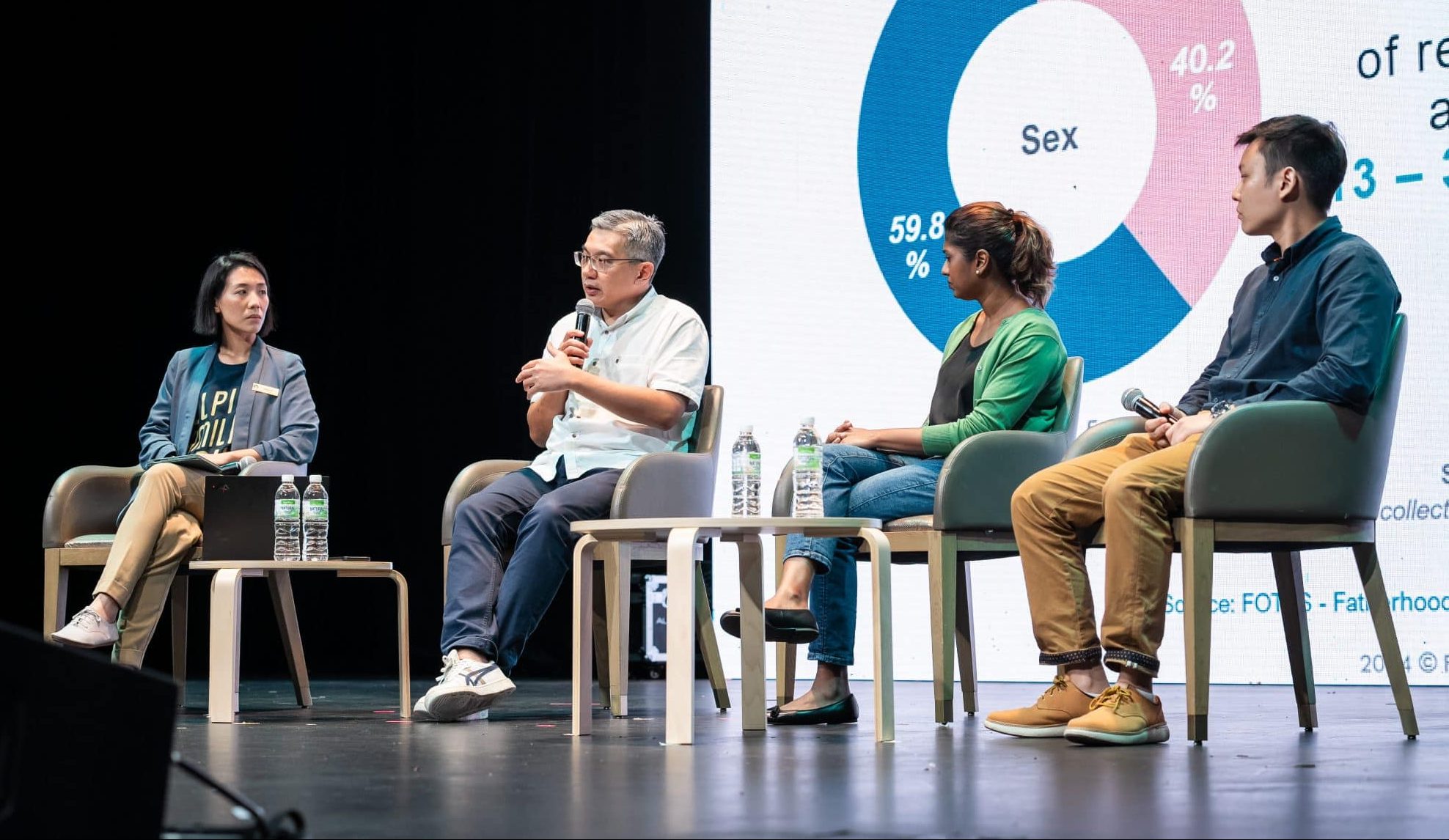
At the panel discussion moderated by Focus on the Family Singapore CEO, Delia Ng (far left), speakers from different generations shared about their journeys of being fathered or fathering. All photos courtesy of Focus on the Family Singapore unless otherwise stated.
From the start of this year, paid paternity leave was doubled from two to four weeks. But do fathers know what to do with that extra time (if they are even taking it at all)?
And for dads with older children, how much of the interaction with their kids is meaningful?
These were just a few questions that were raised at the State of the Family (SOTF) 2024, a yearly event organised by Focus on the Family Singapore that spotlights current issues affecting families.
Held on Wednesday (February 21) at the Capitol Theatre, SOTF 2024 gathered 350 representatives from across society, including faith-based organisations and community partners, to unpack trends and explore ways to shape next-generation relationships.
While the Government’s move to increase paternity leave has been “a step in the right direction” for a more family-friendly culture, Alicia Boo, Chief, Impact & Principal Counsellor, challenged the audience to dive deeper.
“What else needs to be done to support marital and parenthood aspirations? And what can we do as a community to better support them?” she asked.
It is with this backdrop that Focus Singapore embarked on a recent Fatherhood Involvement and Marriage Aspirations Survey.
Conducted between November 2023 and February 2024, 443 people were interviewed. Here are more details about the respondents.
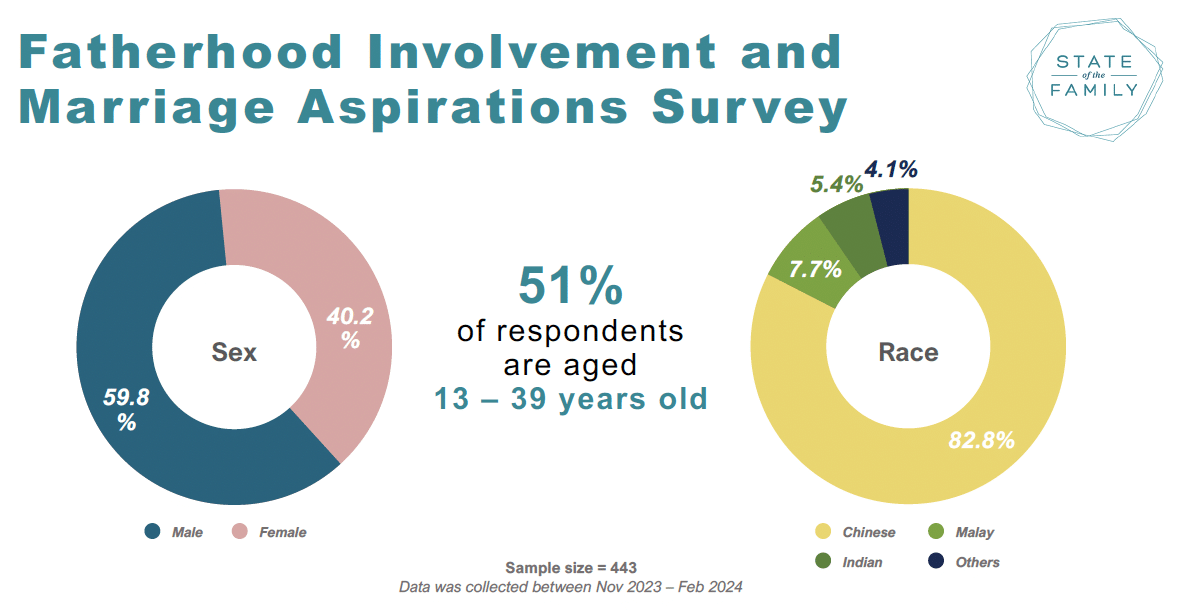
Source: Fatherhood Involvement and Marriage Aspirations Survey by Focus on the Family Singapore
In the first of this two-part series on SOTF 2024, Living Room by Salt&Light will focus on key insights that relate to fatherhood.
Children want fathers to be more emotionally involved in parenting
Among the 397 respondents who shared about their experiences with their fathers, these were the top three areas where fathers have been most involved and least involved in.
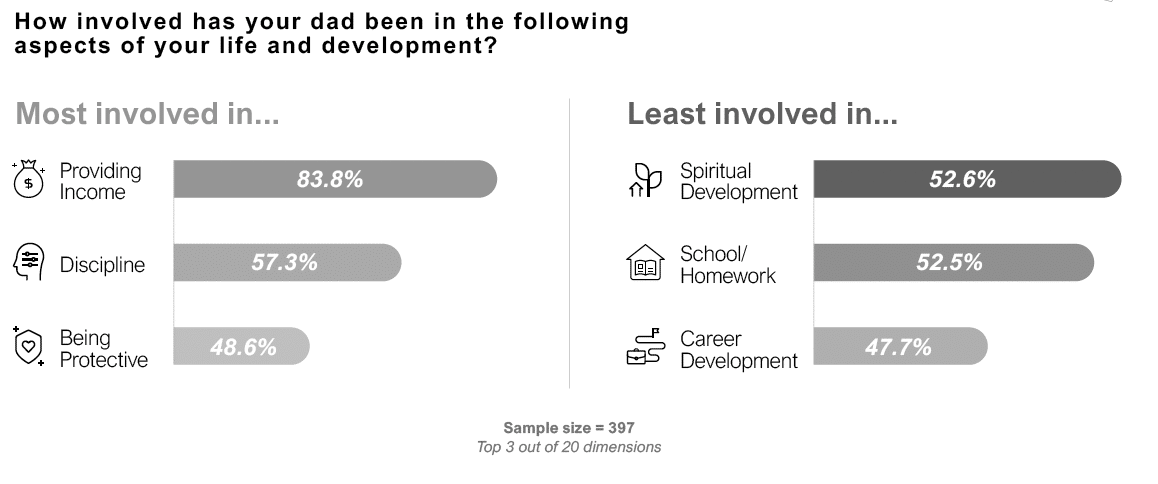
Source: Fatherhood Involvement and Marriage Aspirations Survey by Focus on the Family Singapore
Respondents were also asked what they desired for their dads to have more or less involvement in.
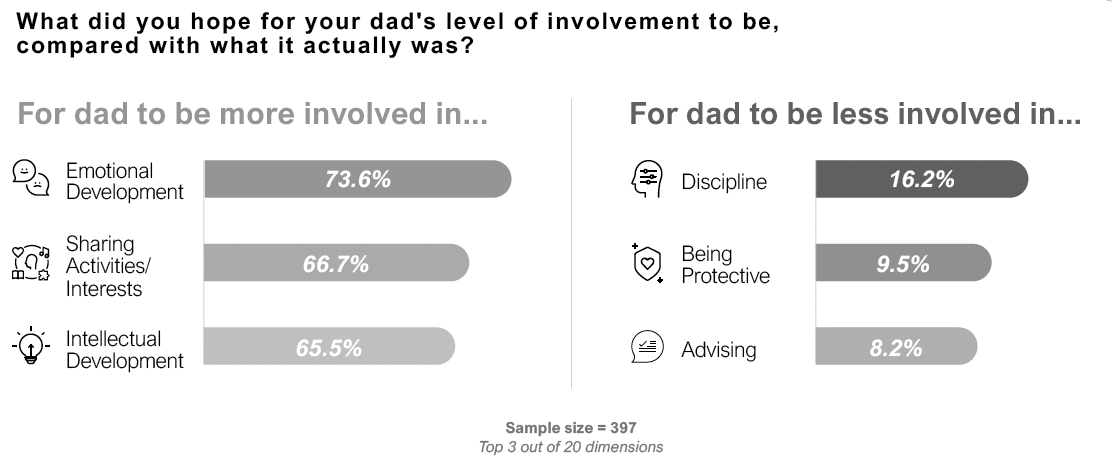
Source: Fatherhood Involvement and Marriage Aspirations Survey by Focus on the Family Singapore
Based on the survey responses, it seems that many fathers may still be finding it difficult to go beyond the traditional roles of breadwinner and disciplinarian in their families.
However, one gets the sense that the tide is changing.
Passing on the legacy of fatherhood
Sharing through a video interview that was played at SOTF 2024, Josiah Ng, opened up about his choice to be a stay-home father.
This was a decision that was motivated by his desire “to be more present” with his two sons aged 4 and 8, he revealed.
Looking back on what he learnt from his own father, Josiah said that whenever he was disciplined for a mistake, his dad would always make an effort to connect after giving him some time to be alone.
“He would make sure that he would have a debrief session,” recalled Josiah.
“He would always end the night or the session with him coming to me and say, ‘Come, let me talk to you. The reason why I had to actually do this to you… was because I love you. That’s why I need to teach you.'”
As a result, Josiah said that he, too, is intentional about connecting with his children now.
“I’m very conscious now about making sure that after the act of punishment, I would spend some time holding (my son’s) hand, telling him that I love him and this is why I had to do what I had to do.”
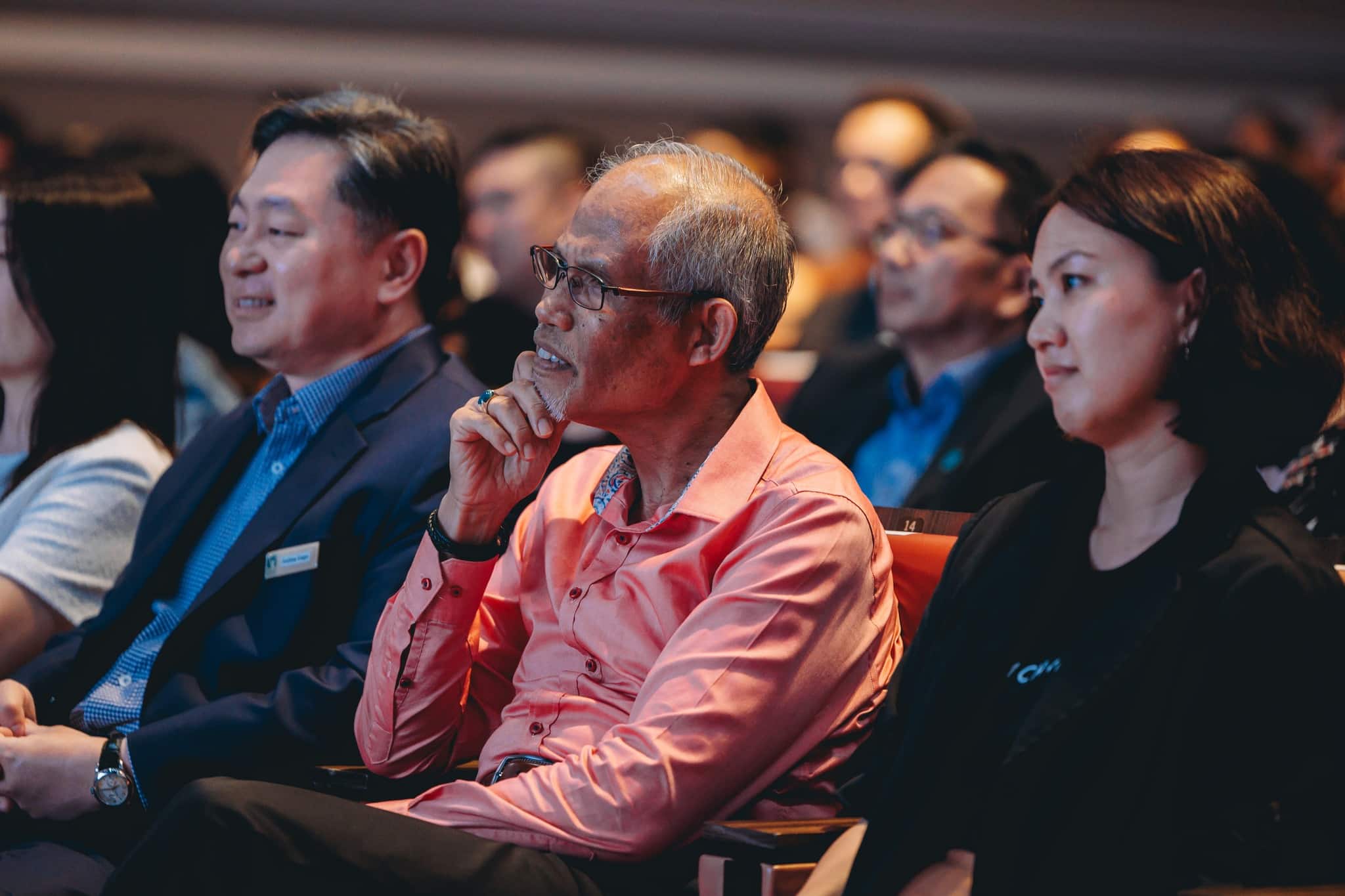
Giving the opening address at SOTF 2024, Guest-of-Honour Minister for Social and Family Development, Masagos Zulkifli (centre), also pointed out that parents are children’s first role models. Source: Facebook
In his own journey as a father, Josiah also realised that being vulnerable with his children builds connection, especially in the moments when he falls short.
“It helps me to connect with my son, to say that, ‘Papa made a mistake today. I shouldn’t have done this. I will learn from this mistake. What do you think Papa should do the next time?'”
Reflecting on Josiah’s experience of being parented and becoming a parent himself, Focus Singapore’s Alicia concluded: “From Josiah’s story, one can see the centrality of fathers in shaping the next generation’s identity…
“So what happens when there is a lack of healthy male role models for our young?”
Fathers need to find men they can emulate
Indeed, one of the key points that was brought up in the panel discussion that followed was the challenges that fathers face.
While many fathers today recognise the need to be more present in the lives of their children – often in ways that their own dads were unable to – the lack of positive role models and a circle of support were singled out as two areas that men need more help in.
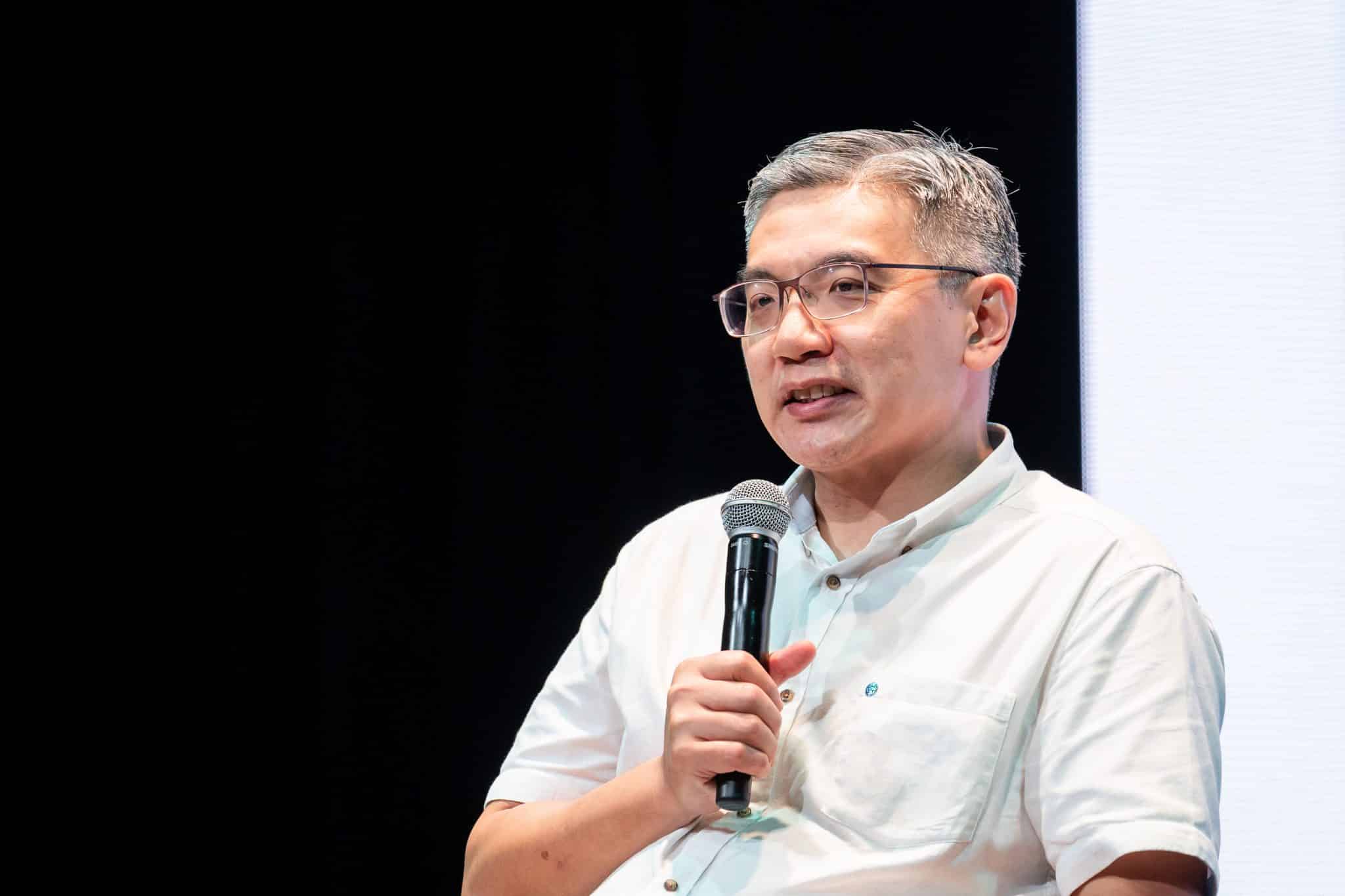
Father of three, Nicholas Gabriel Lim, shared how he initially struggled to understand his own dad and how that affected him.
One of those who shared was Nicholas Gabriel Lim, Head of Graduate Diploma in Youth Work and Professional Life Coaching Programmes at Singapore University of Social Sciences.
In his growing up years, Nicholas’ father travelled for work, so he was usually looked after by his mother. But as the person in charge of discipline, his dad would mete out the punishment whenever he returned home.
As a result, Nicholas grew up with an image of a father figure that was “quite distant, quite harsh”.
However, because he was active in school and the community, Nicholas came to see that there were other male adults “who were firm and gentle”, such as his teachers.
“I learnt what it was like to look after kids, and I took reference from that,” said the father of three.
It was only later in life that Nicholas realised that his dad had always carried out the discipline thoughtfully, even though his good intentions were not communicated.
Knowing that how his father dealt with him was similar to how his grandfather had also related to his father also gave Nicholas a better understanding of why he had been parented that way.
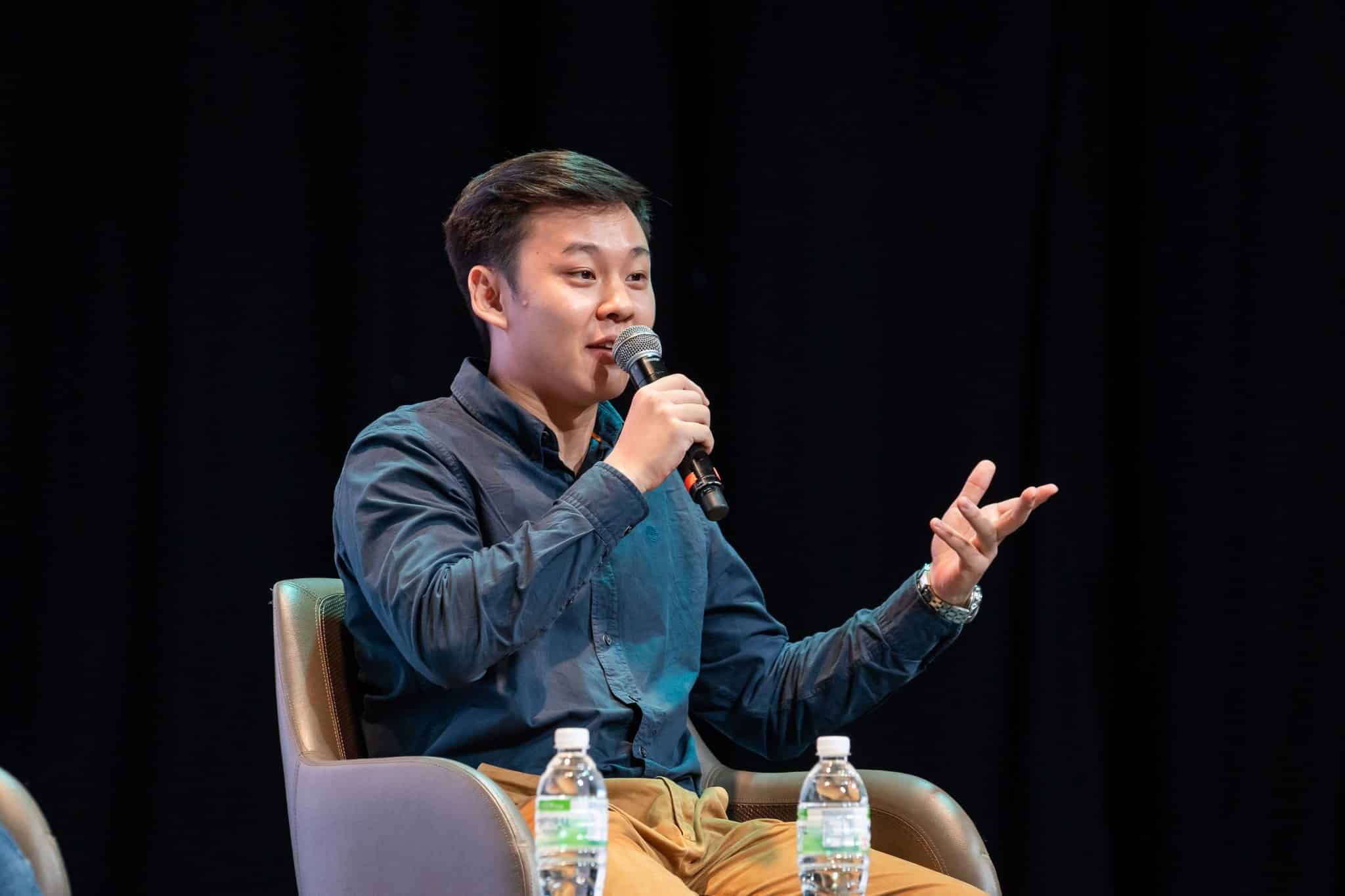
Undergraduate Luke Ong said the support his father received from church helped them to have more meaningful interactions.
Adding on about the impact (or lack thereof) of one generation of fathers on the next, Luke Ong, a final-year student in social sciences, also shared about the struggles his dad faced.
“My dad never had that kind of father figure. So although he really tried to be involved in my life, at the early stages, it was more interaction than meaningful interaction,” said the young adult.
“That’s one of the biggest challenges: Just because you interact with a kid doesn’t mean there are certain goals that you’re achieving. (My dad) was very chill and just let me did whatever I wanted.”
However, Luke witnessed his father becoming a better dad through the support he received from church.
Looking at how his father tapped on the wisdom of cell group members and mentors who had older children, Luke stressed the importance of developing more of such networks in society.
“I think that circle is very important for men as we become fathers,” he emphasised.
Wives can play a crucial role too
Agreeing that surrounding yourself with a “village” can be very empowering for fathers, Judith Xavier, a mother of two teenagers, pointed out that so is having the support of wives.
“The way that my husband fathered the kids was to really take care of their physical needs,” she said of her children’s early years, adding that this was because of how her husband’s father parented him.
“But as a wife I realised that if I wanted him to do things differently, I couldn’t do everything for him or by myself.
“I had to allow him to be a dad. I had to allow him to practise that fathering muscle.”
Observing that her husband stepped up the more she stepped back, Judith remarked: “He got more and more confident as a father.”
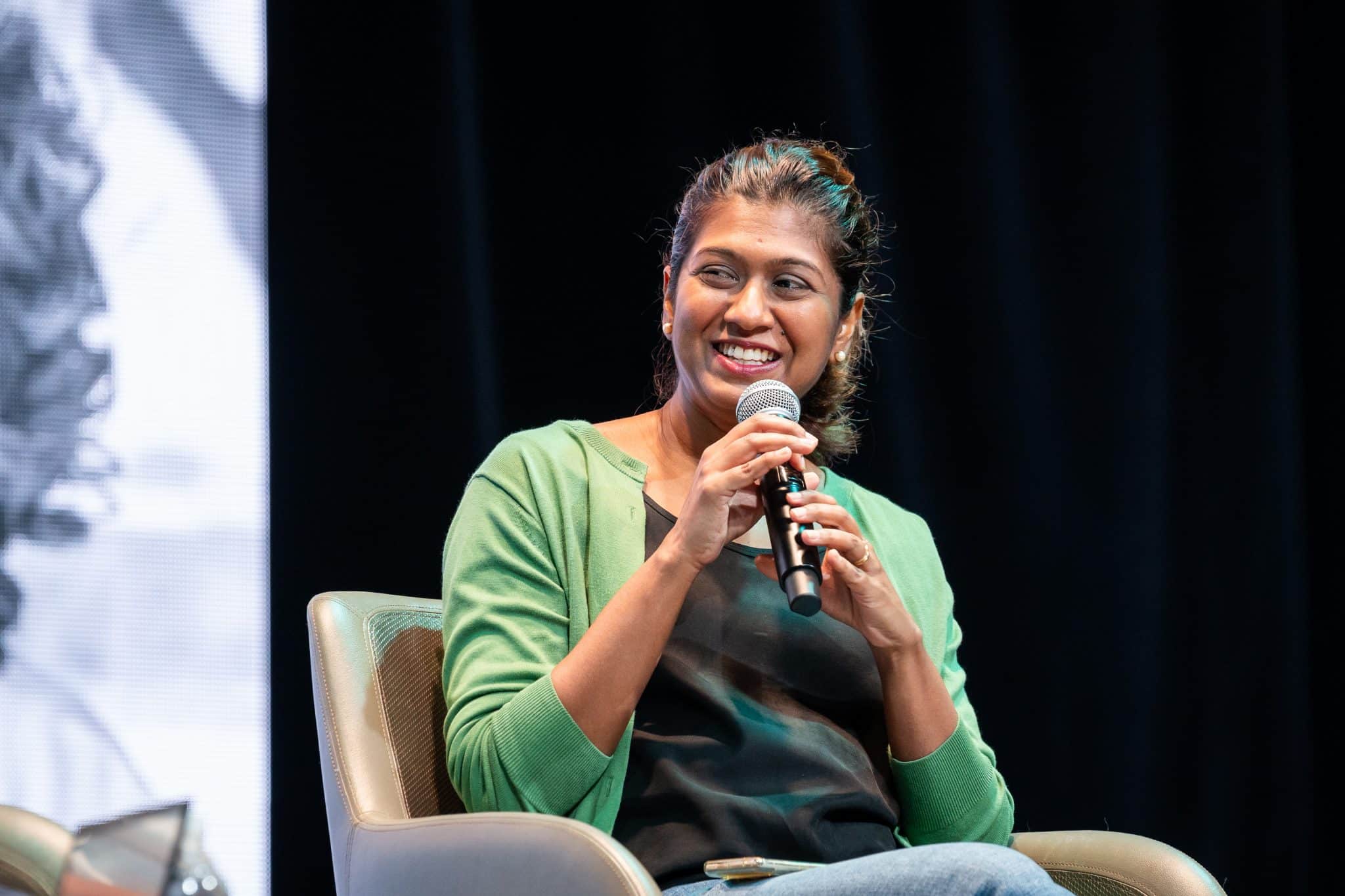
Mum of two Judith Xavier grew up with a father who was very present in her life, but this was not the case for her husband.
“He never did it in the way that I would do it,” she confessed with a laugh.
“But I had to restrain myself from always trying to step in there and do it my way, and allow him to do it his way.
“The more that he could do that, then he also allowed himself to be more vulnerable – with me and with the kids as well.”
“I had to allow him to practise that fathering muscle.”
Reiterating that community support is also important, she said: “It took a lot of good men around my husband to encourage him to step up – friends and close family members who said, ‘Hey you’re doing a good job. I can see the boys love you so much.'”
Heartened by what she saw as a hopeful trend for fathering in Singapore on the whole, Judith summarised what she took away from all the sharing at SOTF 2024.
“It sounds like from generation to generation, can you see how the fathers are also growing and evolving in their fathering?
“I think it’s amazing. As a mother of two boys, hearing that is very encouraging to me.”
Check out Part 2 of our coverage from SOTF 2024 where we share more findings on the state of current marriages, as well as how we can encourage the young in their marital aspirations and those who are already married to build strong lifelong bonds.
RELATED STORIES:
“The first time we held hands was after we got engaged”: Deputy Minister Hannah Yeoh’s love story
We are an independent, non-profit organisation that relies on the generosity of our readers, such as yourself, to continue serving the kingdom. Every dollar donated goes directly back into our editorial coverage.
Would you consider partnering with us in our kingdom work by supporting us financially, either as a one-off donation, or a recurring pledge?
Support Salt&Light


